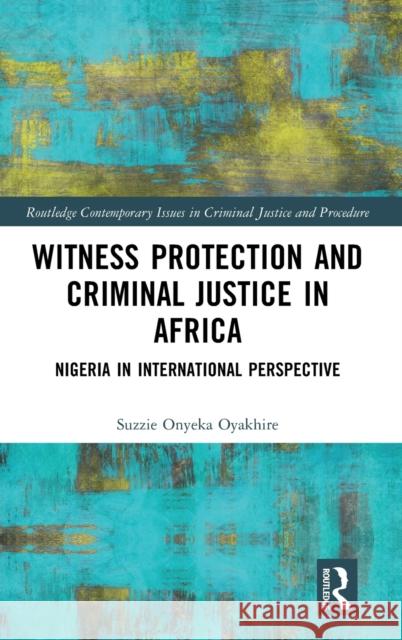Witness Protection and Criminal Justice in Africa: Nigeria in International Perspective » książka
Witness Protection and Criminal Justice in Africa: Nigeria in International Perspective
ISBN-13: 9781032057934 / Angielski / Twarda / 2023 / 224 str.
Witness Protection and Criminal Justice in Africa: Nigeria in International Perspective
ISBN-13: 9781032057934 / Angielski / Twarda / 2023 / 224 str.
(netto: 627,14 VAT: 5%)
Najniższa cena z 30 dni: 651,77 zł
ok. 22 dni roboczych
Bez gwarancji dostawy przed świętami
Darmowa dostawa!
This book examines the concept of witness protection which is still at an early developmental stage in several African countries including Nigeria, from a legal and institutional perspective. Recent developments in Nigeria highlight the need to clarify legal and conceptual issues within the existing legal framework for protecting witnesses.
This book examines the concept of witness protection which is still at an early developmental stage in several African countries including Nigeria, from a legal and institutional perspective. Recent developments in Nigeria highlight the need to clarify legal and conceptual issues within the existing legal framework for protecting witnesses. Using the Nigerian case study, the book illustrates some obscurities inherent in the concept of witness protection. These are highlighted around five critical areas: the definition of witness protection; the scope of beneficiaries requiring protection; the nature of crimes necessitating protection; the nature of protective measures; and the administrative control of witness protection.
Specifically, this book draws from the existing literature and practices of witness protection and adopts two distinct perspectives: the criminal justice perspectives and human rights perspectives as heuristic tools for analysing the concept and to separate the disparate influences that shape how it is construed. These distinctions are utilised throughout the book as an integrated way of conceptualising the concept of witness protection. By discussing the practice of witness protection within the Nigerian context, the book contributes to African conversations on the topic of witness protection. The clarifications made in this book are utilised in making normative proposals for developing a legal framework for witness protection in Nigeria. They are also useful for other African countries interested in developing a witness protection framework as part of criminal justice reform.
This book will serve as a reference point for legal scholars, researchers, academics, (postgraduate) students and policy makers interested in the concept of witness protection. It would also be useful for courses ‘concerned with comparative criminology where there is an interest in developments in the Global South.’











